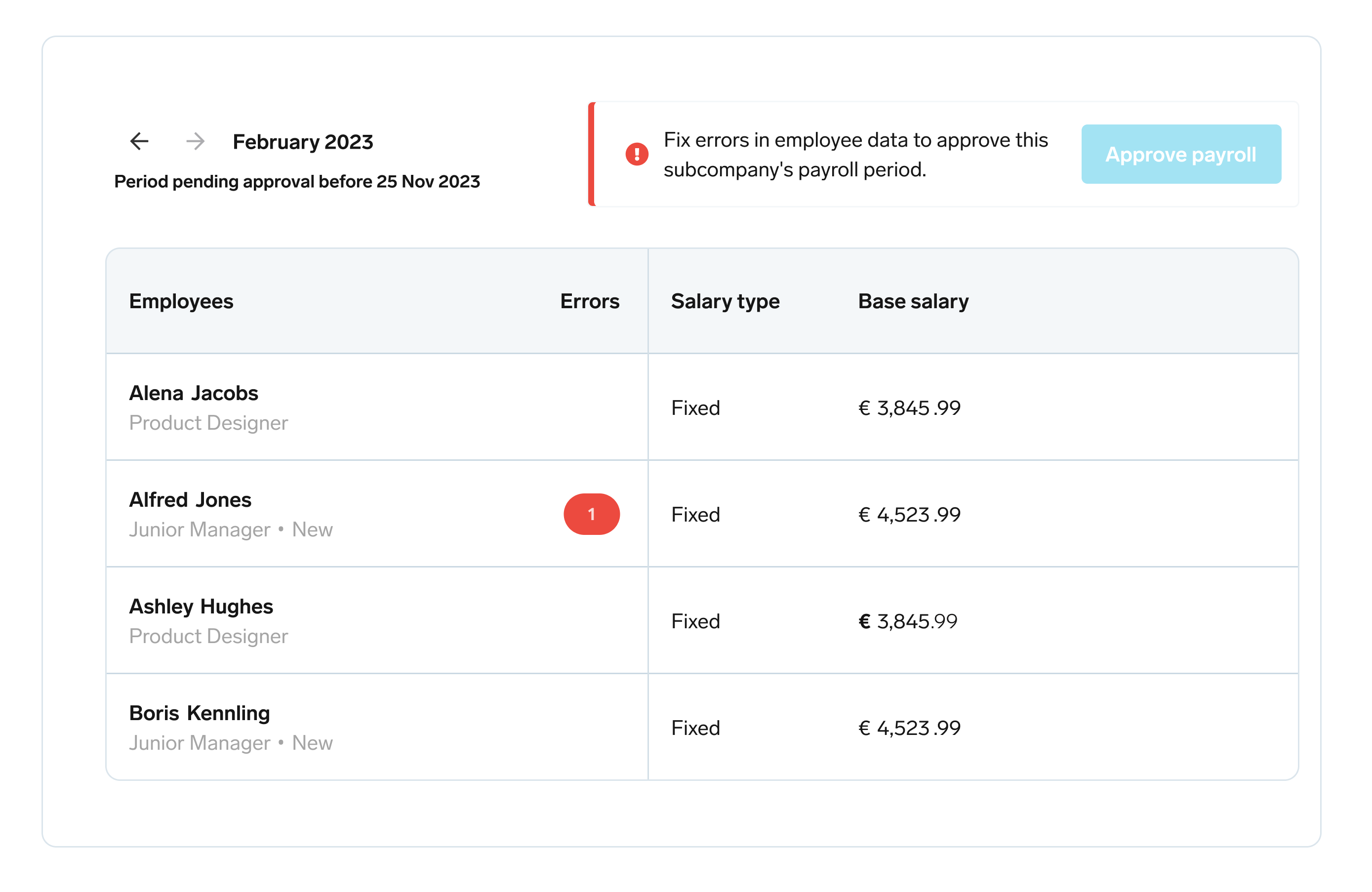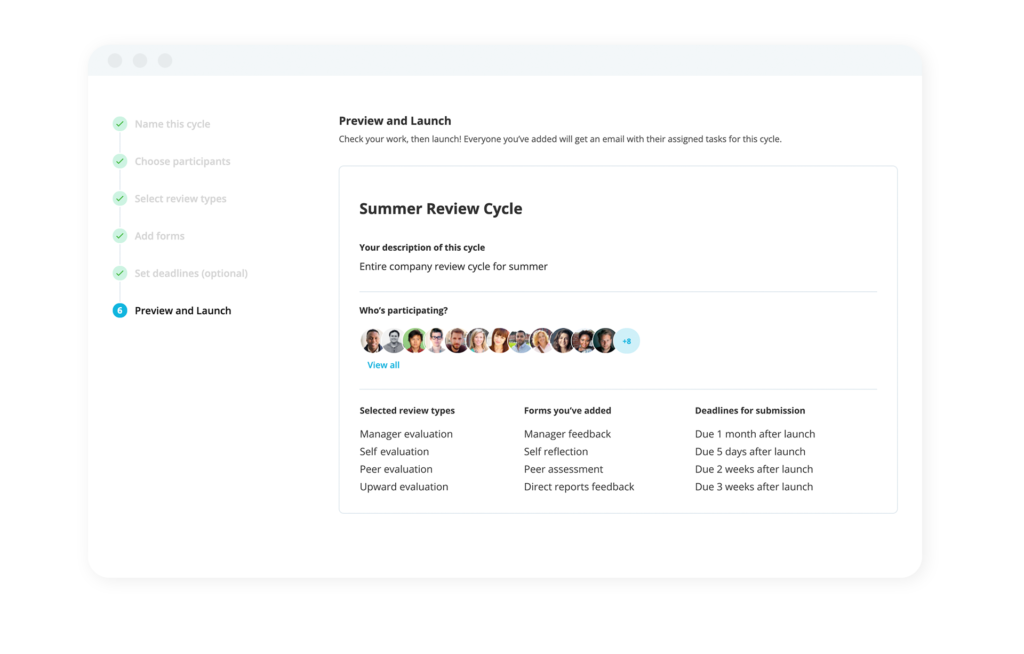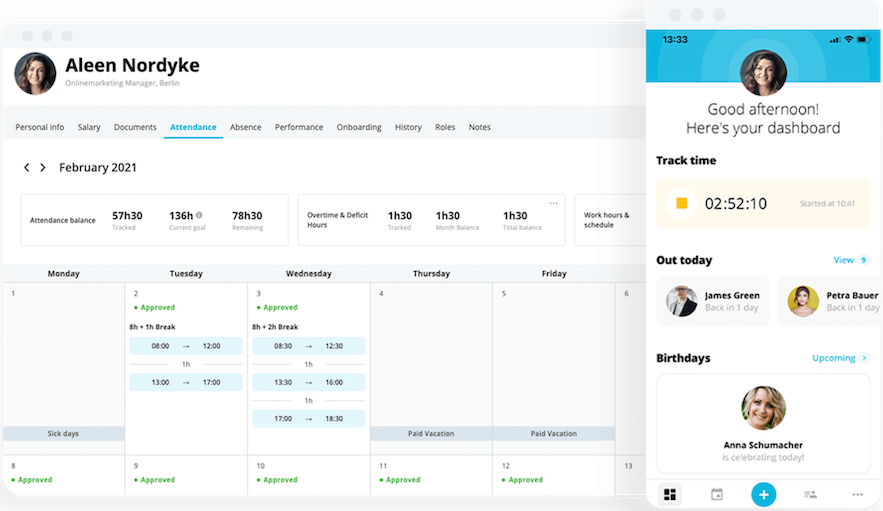
Integrate payroll with HR management
Integrate payroll processes seamlessly with Personio's comprehensive HR management platform.
Explore our productAverage Pay Rises in the UK: The Collected Guide
The cost of living crisis is impacting workers across the UK and, for most, the average pay rise is not enough to keep up with higher costs. But with three in four workers considering changing jobs due to the economic environment, employers can’t ignore this issue.
This guide to average pay rises in the UK will help you understand what employees expect, see the relationship between pay rises and retention and decide whether to offer an inflation pay rise in 2023.
Help your organisation become 'Recession Ready.' Download our guide today.What is a Pay Rise?
A pay rise is an increase in the wages or salary an employee is given for the work they perform in an organisation. The organisation can provide a pay rise for a number of reasons and in multiple ways (e.g. salary, bonus, etc).
Pay rises have a positive impact on the employee’s net pay and overall buying power and can boost engagement, productivity and retention.
When Does a Pay Rise Typically Occur?
The circumstances of a pay rise tend to differ. An employee could receive one based on exceptional performance, a promotion, increased duties in their role, changes in the business, or the economic landscape (e.g. an inflationary environment like we are experiencing in 2023).
However, the most common times for pay rises to occur are during a performance cycle or in the event of widespread changes to an organisation.
What Has Been the Average Pay Rise in the UK?
According to the Office for National Statistics (ONS), median monthly pay in the UK for August 2022 was an estimated £2,113, an increase of 6.5% when compared with the same period in 2021.
There are a number of more granular statistics that are also helpful to review:
Average regular pay growth was 6.2% in the private sector and 2.2% for the public sector from June to August 2022.
Aside from the peak of the coronavirus pandemic period, this is the largest amount of growth for the private sector, as well as the biggest difference between the private and public sectors.
Bonus levels have been higher compared with previous periods, particularly in March 2022. Who’s receiving the largest bonus payments? Employees in the finance and business services sector.
A survey in January 2022 found that over 80% of employers planned a pay review in 2022. 40% expected to increase basic pay, 7% expected a pay freeze, and 1% expected a decrease.
Clearly, the events and economic conditions of 2022 have caused employers to think critically about pay rises and what they can afford to do for their employees.
Give Potential Room To Grow With Personio

Automate your performance cycles to open up time for job enrichment with Personio today.
Find Out More
Will There Be an Inflation Pay Rise in 2023?
Whether there will be an inflation pay rise in 2023 will depend on the organisation, but it is clear that most pay rises this year have not matched or outpaced inflation.
Growth in total and regular pay decreased in real terms (adjusted for inflation) year-over-year in the June to August 2022 period: 2.4% for total pay and 2.9% for regular pay.
This is slightly down from the record decline of 3.0% in real regular pay during the April to June period but is still one of the largest falls in growth since recording began in 2001.
The increasing difference between nominal and real pay growth rates is due to increasing consumer price inflation, inclusive of owner occupiers' housing costs (CPIH).
During the period of June to August 2022, CPIH in the UK was an average of 8.5% – so this is a real issue for UK residents and workers.
What is the Relationship Between Pay Rises and Retention?
Research has shown a direct relationship between higher pay (and pay rises) and higher retention rates. One Harvard University study in the United States found that a pay increase of $1 per hour among warehouse workers led to a 2.8% increase in retention, while a $1 per hour decrease resulted in a 28% increase in turnover.
Some parts of the last few years saw a peak in worker power, and while employers have more power now as hiring decreases, retention is still a challenge.
CIPD (The Chartered Institute of Personnel and Development) releases a quarterly Labour Market Outlook which found that 46% of employers with retention difficulties had raised the pay of their workforce in the last six months.
Should Your Organisation Implement an Inflation Pay Rise Policy?
Every organisation is different, and the decision about whether to implement an inflation pay rise policy in 2023 will depend on the economic situation of your business, how your industry is faring, and what employees are asking for.
However, take note that not investing in your workforce and raising their pay as they deal with the cost of living crisis could lead to immediate negative outcomes for your organisation. As mentioned earlier, three in four workers are considering changing jobs in the UK due to rising costs, so a pay rise may improve your retention rates and save you from an expensive headcount crisis.
Whether employers plan to offer an inflation pay raise or not, many employees feel their compensation is lagging behind inflation, so organisations are being urged to prepare for a large influx of pay rise requests.
Meet The People Operating System
WATCH: Get to know Personio in three minutes

We need your consent to load this service!
This content is not permitted to load due to trackers that are not disclosed to the visitor.
Personio is an all-in-one HR software designed for every stage of the employee life cycle.
Using Personio, you can manage all your most important HR processes from one place. Recruit, manage, develop and pay your employees from one centralised HRIS.
For HR professionals, you can unlock new levels of productivity and influence. Become the HR business partner that your business needs, by getting back time for what matters: your people.
For line managers, Personio seamlessly builds automated performance cycles, tracks vacation days and keeps employee information up-to-date (and in a compliant fashion).
For employees, no more fussing with cumbersome tools and processes. Employees can request days off, change their information and keep track of goals and more. All from one place.
Speak with an expert today about your HR needs and how Personio can meet them. Or, give Personio a spin for yourself by starting your very own free trial right now. It’s all yours for 14 days.
